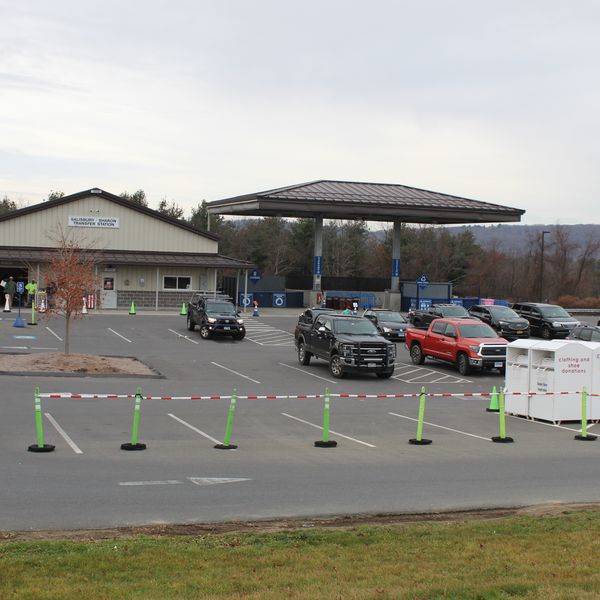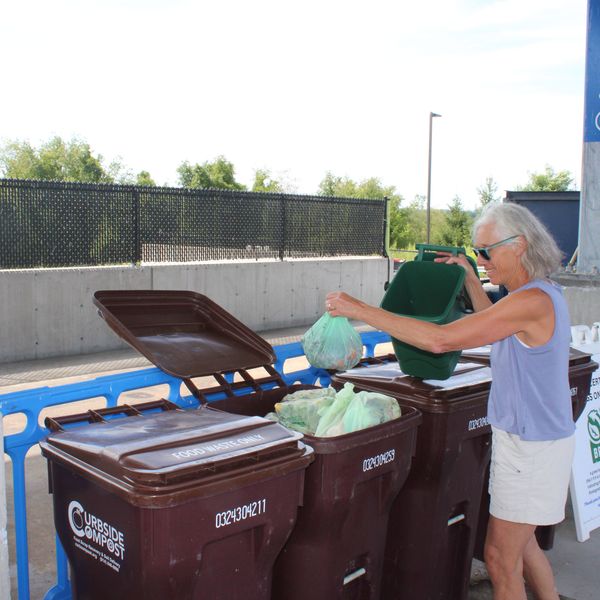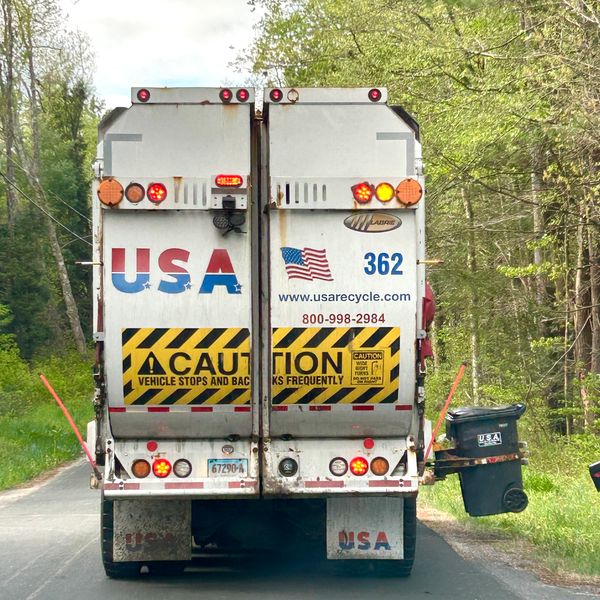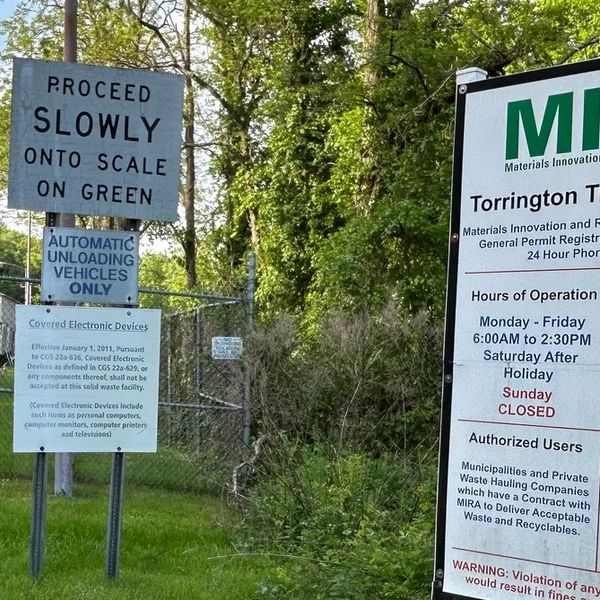MIRA enters agreement for private sale of Torrington Transfer Station
Regional efforts to create a public option for municipal solid waste contracts are back to square one.
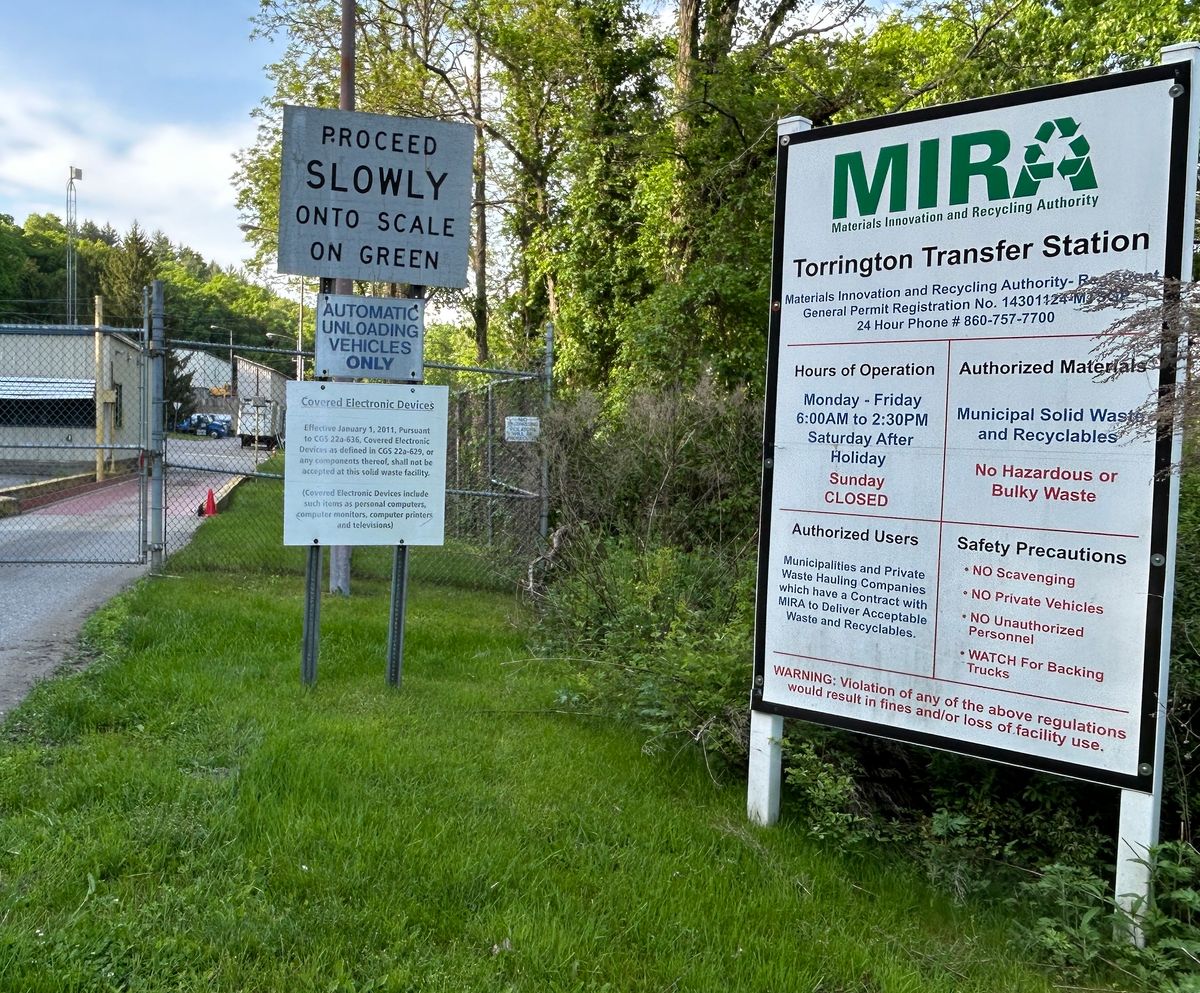
Torrington Transfer Station’s entrance.
Photo by Jennifer Almquist
